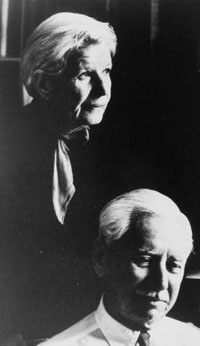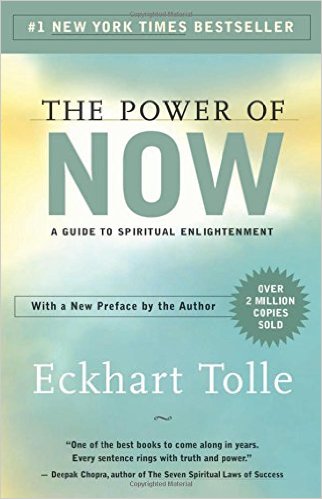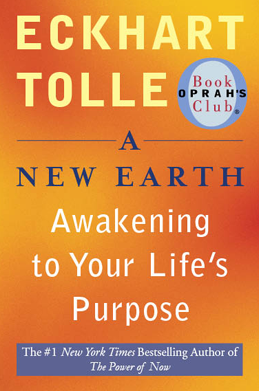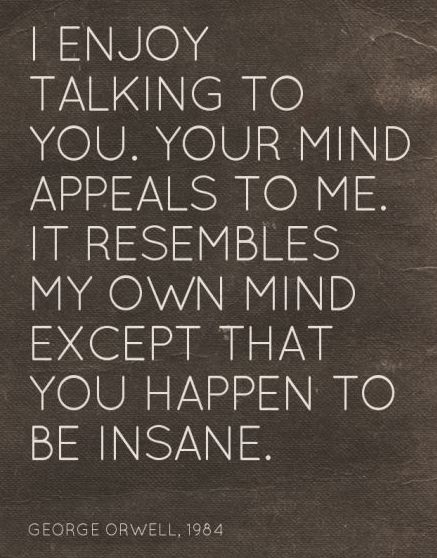|
home | what's new | other sites | contact | about |
|||||||
|
Word Gems exploring self-realization, sacred personhood, and full humanity
Editor's 1-Minute Essay: Utopia
Sir Thomas More
how's that utopia thing workin' out for ya Thomas More’s Utopia, published in 1516, is a fictional account of a purported ideal society on an island, Utopia. But it’s not a place where you’d want to be for a long time. Society in More's Utopia is built around congenial concepts like totalitarianism, socialism, slavery, a banning of private property and money to keep you from greed, communal meals with daily homilies to keep you smiling, common wardrobe and identical housing for all citizens obviating any tendency toward envy, enslavement and the death penalty for minor infractions to encourage your morality – we could go on. Are we having fun yet? just what're you trying to say Scholars are divided concerning More’s purpose for writing. We’re not sure if he wrote a satire or a sales-pitch regarding daily life in sixteenth century England. “Utopia” literally means “nowhere.” More could have been saying, “What I’m writing here is really far out and all this draconian measure has a big chance of being successful nowhere”; or, he could have meant, “The ideal society which I envision and promote in this book is nowhere to be found on Earth, but we must work toward it.” For our purposes at hand, “utopia,” in common usage today, refers to an ideal society or place to live. Unfortunately, we might find this precept filed under the "myth and fable" category. We'll discuss why.
in all of Earth’s history, every time, with no exception, whenever somebody has tried to unilaterally impose a private definition of morality, righteousness, or justice to create a ‘perfect society,’ that’s when the shooting starts More's Utopia is Plato's Republic on steroids; or, it's a page from the playbook of the founders of Communism. Some of the original doctrines from Marx and Lenin, or even the Soviet Constitution, are just wonderful -- on paper: equal rights for all, basic human needs satisfied, full employment granted by the State, all wealth shared, a fair and just society for everyone. Well, it all sounded really great. But we know how the story ends: tens of millions of people starved to death or executed by the Soviet rulers of utopia. no shortage of examples There's no need to supply other examples; we can find all we want in Will and Ariel Durant's multi-volumed "Story Of Civilization." Top-down, command-style forms of governmental authority, sooner or later, always produce human oppression and atrocity. Read about it, too, in Nobel laureate Hyak’s “The Road To Serfdom.” but why should this be so Most of history’s command-style authoritarians, to state the obvious, had no intention of creating a commonwealth – a just society in which wealth would be held in common. They were totally self-seeking and brutal from day one. But some – as per the fabled “good king” of fairy tales – did wish to serve the people and make life better. Yet, even in these rare cases, no just society was forthcoming; or, if things did go well for a while, eventually it all fell apart. How do we know this is true? It’s true because in our world today we cannot point to a single example of top-down, command-style authority that has produced a just and equitable society; not just long-term, but we’d be hard-pressed to mention even one that worked for a little while.
Yes, of course, those who love freedom would not quickly invite a Caesar to rule over us. But the point is this: for its time in history, the world could have done, and usually did, worse, and much worse. Some of the Caesars were “philosopher kings” and tried to make life better for their people. The result was the famous Pax Romana, Roman Peace. And while the concept of individual human rights was not yet well-developed, neither was it totally unknown as much of our legal system today, in principle, goes back to Roman law courts. The Durants’ key phrase is “finest succession.” In American and British history, we too have had our champions of freedom, the good men and women who have served in government. However, our problem has been the “succession.” We’d have a wise and just leader, and then we might have to wait 30 or 40 years to get another capable and decent person, willing to fight for the greater good. Roman “adoption” was not a perfect system, but to have a retiring good man choose another good man is not a bad way to perpetuate a just society. But, even the success with this eventually broke down and bad characters slipped into power; nevertheless, it was the best, the “finest succession” of relatively good leaders, the world has ever seen. But this is not what I want to argue for in this writing.
the question, how to create a just and good society, a ‘utopia,’ is but subset to a more fundamental issue: why have all of history’s attempts to produce a truly good society ended in failure, what’s wrong with us, why can’t we win at this even when we set out purposefully to accomplish it We won’t be able to produce a “utopia,” a good society, until we, ourselves, individually, each within his or her own heart and mind, come to terms with what it means to be a “good person.” On the “spirituality” page, you’ll see links to four articles on “how to become a good person,” and you’ll want to review these, but let’s talk about this in reference to “utopia.” is it a lack of information or education Many believe that this is the reason for the world's mess: “If only people had better education, more instruction, then we could all move forward toward a better society.” Education is always good, but this is not the heart of the matter. Those with PhDs or the most sophisticated in society are not necessarily so high-minded and spiritually advanced.
Let me say, too, it takes more than a well-intentioned "philosopher king" to do this the right way. Even the best of intentions, if not built upon a clear perception of the "true self," will fray and crack under sufficient provocation. This means that a man of good character and good education is not enough. Before we speak of solutions here, let’s run down a list of items from More’s “Utopia” which are popularly believed to be the cause of our troubles. On the island of Utopia they banned nice clothes and nice houses, money and property, because, they were sure, “If we get rid of the things that people fight over, then they’ll never be envious again.” (sighing) This is rather shallow, isn’t it? People of primitive tribes, who have no house with curb appeal or a full wardrobe of fancy duds, still kill each other, or cannibalize each other, or make slaves of each other. Envy is not expunged from the human darkened heart by taking away what we in the West crave. They’ll just find something new to feel hard-done-by; it's, the “politics of envy” on the tribal level. When Lewis and Clark encountered the western Natives, the primitives were killing and pillaging each other for a farthing’s worth of goods. You see my point, and so I will not belabor this line of thought. It’s a wonder that anyone would take seriously the proffered etiology of human greed found in “Utopia.” our old friends, the “false self” versus “the true self” We've often visited with the "false self" and the "true self." Here’s the deal: You could be a billionaire and still feel “I don’t have enough.” You could earn 10 PhDs and still feel inferior and worry, “I am not enough.” It’s not that people consciously say these things to themselves – although, some do – but it’s the gnawing sense of unease, that subliminal existential emptiness, that never lets the unenlightened mind have any peace. You might have five big mansions, each with three very expensive sports cars, but if you’re plugged into “the false self,” you won’t be able to enjoy them; not really. It still won’t feel like it’s enough. It’s a “structural” problem and has nothing to do with “content.” You could have all the content in the world, and on Mars, as well, but if the “Needy Little Me” won’t let you go, then you’ll be hoping to invade Venus, too. There’s no end to it. a systemic insanity And this is why all programs in history to create a utopia have invariably ended in failure, or worse. The “shooting” soon starts because people can’t get rid of the “monkey mind” incessantly chanting “I don’t have enough” because “I am not enough.” It’s a systemic insanity that cannot be addressed and put right on the level of materialism. These books will advise you concerning how to access the "true self":
Is Summerland a utopia? Strictly speaking, I would have to say, no. It's wonderful beyond description, but not absolutely perfect. There are many people in Summerland, maybe the majority, who do not fully understand what we’ve outlined in this writing. We discussed this in "Ultimate Reality." Those in Summerland may be “good” people, friendly, would help you if you needed it.
But – most are not yet operating on a level of “goodness” founded upon the deepest inner person. They’ve not yet completed all their existential “homework,” have not yet entered “the long dark night of the soul” to see what they’re really made of. Until they do – which could take centuries -- their perceptions of life and love will remain somewhat thinly based.
Kairissi. The author’s closing comments about immature people in Summerland made think. He said, without a deeper basis of “goodness,” people won’t really understand the nature of “life and love.” Elenchus. mmm… K. He was talking about finding utopia for society, but in microcosm isn’t this what John and Mary do? Their friends warned them about the pitfalls of mere physical-attraction marriage, but they’re so excited, and they really believe that they’ll be able to make this work, that is, have a life of never-ending “to the top” romantic feelings. E. It’s their personal utopia. K. That’s right, and I would say that Mary is more susceptible to this illusion. She wants her house and kids and well-ordered life, the "white picket fence," so badly, and she’s decided to work very hard to make it all come together. She believes that success for her and John is a matter of commitment, trying to the utmost, and she’s ready to offer that. E. I think you bring up an interesting point. It is a microcosm. They, and especially Mary, believe that they can create a utopia of marriage. Maybe all others have failed, but they'll succeed, they tell themselves, because they’re so excited and willing to work hard to make this work. K. (sighing) How quickly the world’s attempt to create a societal utopia unravels – and how quickly John and Mary, too, come to realize that their hopes and dreams for the perfect marriage will not pan out. E. It's the "love that has a nasty habit of disappearing overnight." And in both utopia cases – the world and the faux romance – the enterprise falls flat for the same reason. It’s not built upon a higher level of consciousness. K. That higher level is what “The Wedding Song” calls a “union of spirits.” And fundamentally it has nothing to do with trying very hard or diligence. E. I have my own definition of utopia. K. Do you. E. It’s being with you. K. (small smile) And why should we succeed where others have failed? E. Well, for one thing, we're Twin Souls. We were made to be together. K. I agree, but... this fact didn't keep us from ruining things a long time ago... and becoming enemies. E. (sighing) It is true... we botched our chance for personal utopia with each other... merely having the internal capacity for love doesn't mean it will be accessed. K. Just as all people have the capacity to live in harmony and peace but fail to base their interactions on "the true self." E. Even so... I believe in love... I believe in our love... and I believe that we will yet find its purest form. K. (silence)
|
|||||||
|
|







